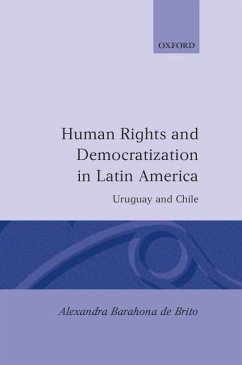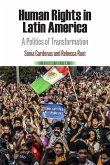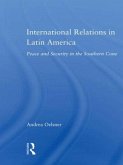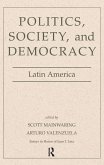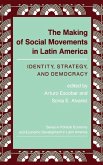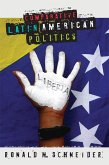Alexandra de Brito's insightful new study analyses the attempts by Chile and Uruguay to resolve the human rights violations conflicts inherited from military dictatorships. The author focuses on how post-transitional democratic governments handled demands for official recognition of the truth about these violations, and for punishment of those guilty of committing or ordering them. Alexandra de Brito sheds light on the political conditions which permitted, or prevented, the policies of truth-telling and justice under these successor regimes. This is the first study to make comparative assessment of human rights abuse in Uruguay and Chile in this way. The author contends that these countries' experiences offer formative examples of attempts to tackle fundamental aspects of the policies of transition and democratization. This powerful and compelling new study makes an original contribution to our understanding of the key political, legal, and moral issues involved.
Hinweis: Dieser Artikel kann nur an eine deutsche Lieferadresse ausgeliefert werden.
Hinweis: Dieser Artikel kann nur an eine deutsche Lieferadresse ausgeliefert werden.
